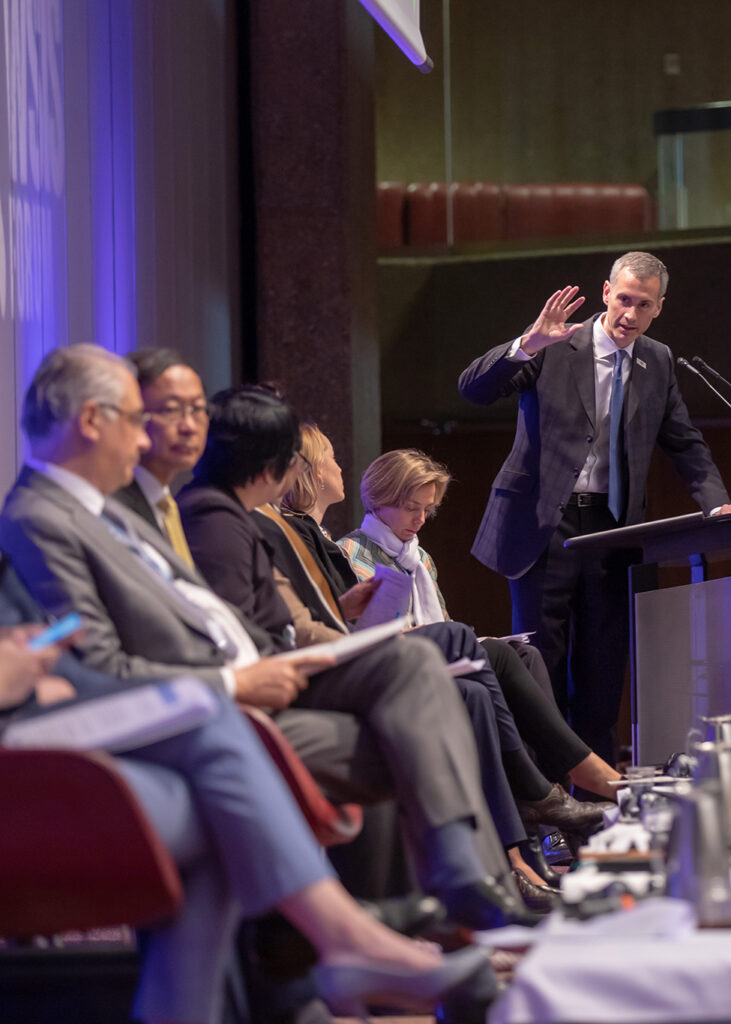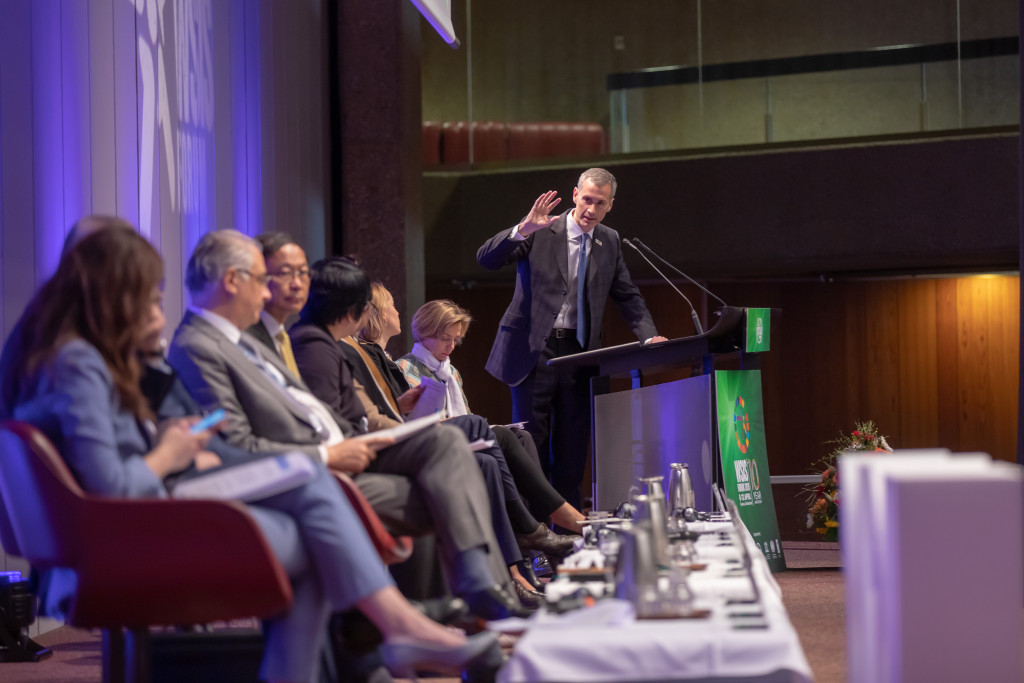

The World Summit on Information Society (WSIS Forum) — the largest gathering of ‘ICT for development’ community and dedicated to helping implement the WSIS Action Lines and the Connect 2030 Agenda — met in Geneva from 8–12 April to hold over 300 sessions themed around using ICT to achieve the Sustainable Development Goals (SDGs).
Access Partnership’s Managing Director, Greg Francis, and Policy Analyst Hussein Abul-Enein attended to moderate panels on bridging the digital divides, digital literacy, and AI and cybersecurity. Making progress in these areas can bring enormous benefits, and they found that panellists across all three united in favour of flexible regulation, investment in skills, and partnerships between the public and private sectors.
Digital divides
As a High-level Track Facilitator, Greg Francis moderated a panel on bridging digital divides that brought together ministers from Thailand, Equatorial Guinea, Georgia and Poland as well as high-level representatives from the UN and industry. As he pointed out, this was far from the first time WSIS has talked about ways to close the divide, but according to the ministers reporting on their national approaches, progress has been made.
The session also touched upon the need for more inclusion of women — the OECD estimates that worldwide, roughly 327 million fewer woman than men have access to mobile Internet and digital education tools. Similarly, women are often excluded from infrastructure planning, perpetuating exclusion.
The panel emphasised that efforts to address all forms of digital divide require top-level political support and recommended investment-friendly regulatory environment to enhance public-private partnerships. This was reiterated elsewhere by the ITU-D Director, Doreen Bogdan Martin, who reminded the summit that a whole-of-government approach is essential when making decisions on where and how to invest, and which technologies to adopt.
Digital literacy
Greg Francis also moderated a panel organised by American Tower Cooperation (ATC) on digital literacy, including representatives of the ITU, ATC, the UCC, and the MTN Group. Digital literacy is a crucial element for integrating innovation into the economy and realising the promised benefits, but estimates indicate that approximately 825 million people will not be equipped to work and thrive in the 21st century, unless they learn new ‘digital skills.’
Panellists agreed on the clear need for digital literacy initiatives, including bolstering access to quality education and increased female participation. Most importantly, more effort is needed to provide digital skills to help equip workers to face the challenges of the Fourth Industrial Revolution.
AI and cybersecurity
On the final day of the event, Access Partnership’s Hussein Abul-Enein moderated a session on artificial intelligence and cybersecurity, joined by experts from AT&T, SAS, and the Geneva Centre for Security Policy. AI is expected to play a transformational and volatile role in cybersecurity, and the session reinforced the need for collaboration between government and the private sector.
Harmonised efforts around AI development and capacity-building efforts were both named as key focuses. Panellists stressed on the fact that tight regulation will likely stifle innovation and reduce the attractiveness of any given market, inevitably acting as a disincentive for local investment in AI-powered applications. It is thus essential for governments to adopt light regulatory regimes that foster local trust and encourage technology developers to innovate.
As the WSIS week drew to an end, groups reiterated their commitment to the WSIS Action Lines and planned stronger regional-level WSIS action to advance the 2030 Agenda for Sustainable Development as figures from around the world reminded everyone of the benefits of multistakeholder work.
Author: Hussein Abul-Enein, Public Policy Analyst, Access Partnership

